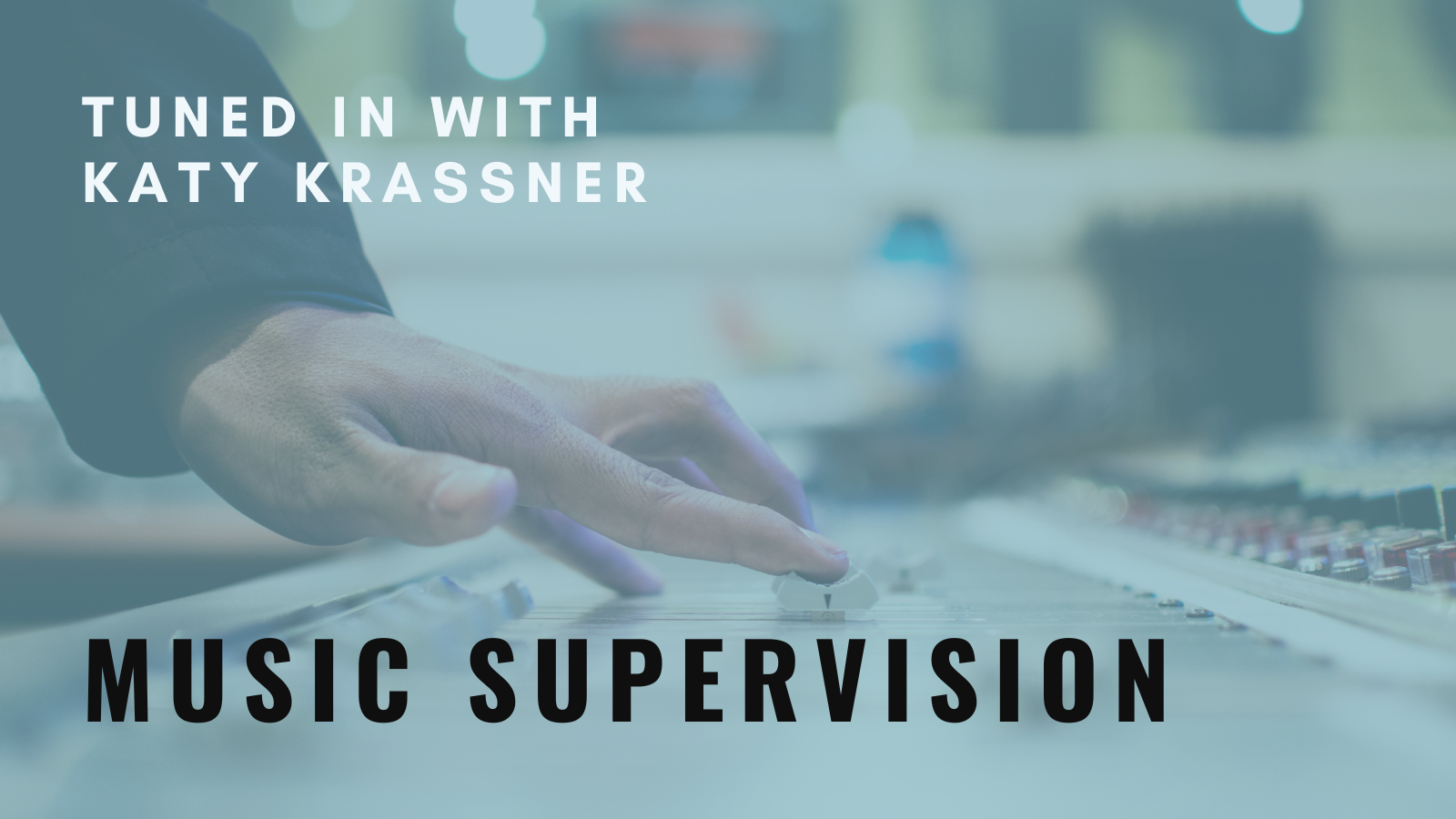MUSIC SUPERVISION – INTERESTING PLAN
You know what’s a really interesting topic? Music Supervision.
Licensing your music for a movie, television show or video game is not only great exposure, but it could make you a lot of money. I host a radio show and there are quite a few songs we have played that took off once they were heard in a TV show or commercial.
Here are some terms you should be familiar with:
MUSIC SUPERVISOR – A music supervisor is someone who looks to place music on television. This includes films, commercials, video games, digital shorts – basically any music placement in any type of media. A music supervisor may work with a filmmaker who says, “I want “Born to Run” in my movie, no matter what it takes.” If they are on a budget, they might say, “I want a song that sounds just like “Born to Run.” It’s up to the music supervisor to make it a reality.
SYNC AGENT – A sync agent is the middle person between composers and/or songwriters and music supervisors. They both pitch to music supervisors who are looking for songs AND may also receive queries from music supervisors looking for the perfect song for what they’re working on. Sync agents are proactive in seeking and securing placements for their rosters. Independent bands or artists can sign up with a third-party rep to be considered for pitching for both the sync (songwriting) and master (recording) sides. Some sync agents may also represent signed artists if they pitch for a label.
PRODUCTION HOUSE – A music production house handles recording, mixing and mastering music. Production Houses frequently have many subsidiaries under one roof. Animation, visual arts, television and music may all be together in one company. If someone in the house has an animated pilot, they’ll check with the music people before going ‘out of house.’
LICENSING REP – A licensing rep handles requests for the right to use music in film, television, advertisements, video games, live performances and more. Record labels usually have their own licensing reps in-house to deal with negotiations and agreements for the masters. Artists or songwriters might also have a music manager that handles licensing for them if they own their masters or are self-published. In either scenario licensing reps clear music rights. Going back to our “Born to Run” example, if a film director wanted that song, the music supervisor they hired would have to contact the licensing reps for both sync and master.
MUSIC PUBLISHER – Music publishers deal with the administration of the songwriting or “sync” side of a song. This means the music composition and lyrics (i.e. not the master recording). Publishers can license music as far as the songwriters portion of a sync placement. In a lot of cases music supervisors would still have to secure the master use rights with a record label. They also secure various uses like performance (played in public or broadcasted) and mechanical reproduction (reproduced for sale or streaming), as well as collecting royalties.
WHAT’S THE SITUATION
So, you might be wondering, how does this go down?
Music supervisors will have a script full of music cues to fill. This means they need great options that are within the music budget. If they’re not in-house, then they frequently take meetings with the production team (director, producers, etc) to pitch songs for each scene. The aim is to place the perfect music for a variety of cue types.
For example, a music supervisor might need background music for a High School dance scene, a featured song for a montage or high-speed chase. There may be a depiction of a rock concert in a commercial that requires clearance of a song. Or perhaps the director has requested a massive hit for the opening or closing credits. In the case of a huge blockbuster – ahem James Bond – they might even reach out to a publisher and splurge on a custom song. [Small Play MPE Caster plug – we have lots of music supervisors who look for music on Player. Just saying.]
Once a song is agreed upon, the music supervisor has to license the track. This is where legal talk comes in – how much will you get paid for the usage of track? If the show or movie comes out on DVD, do they pay you again? What about if the project shows in different countries? If you license to a video game, do you get more money if someone buys a physical copy versus a streaming one? Is there a ‘favored nations’ clause where all artist used for a project make the same amount? There are loads of variables, but this is why you should have good people working with you.
I’M GIVING YOU THE OPPORTUNITY TO WALK OUT WITH THE MONEY
I once took a class in college called “Music Sync – where the money is” (for real). It can be a financial breakthrough to have your music licensed, but you have to be ok with how your song is used. When you composed the track, did you really envision it being in a yogurt commercial?
Not every musician goes on tour or puts out an album; some make a living by composing music for media. Think about how many television shows and movies exist now because of streaming channels. Licensing your song is a very exciting, and often lucrative, opportunity!
